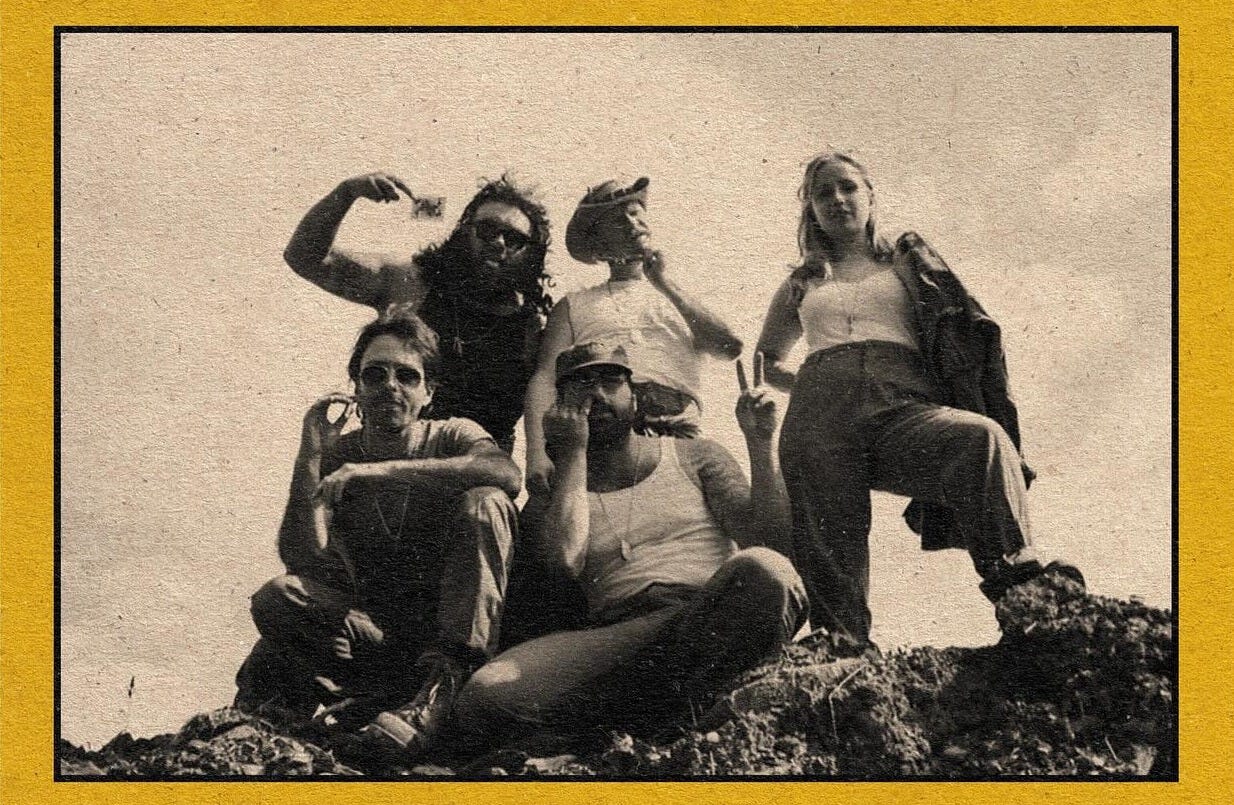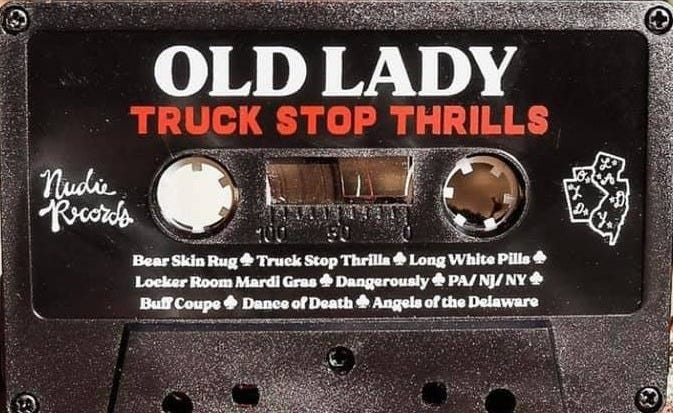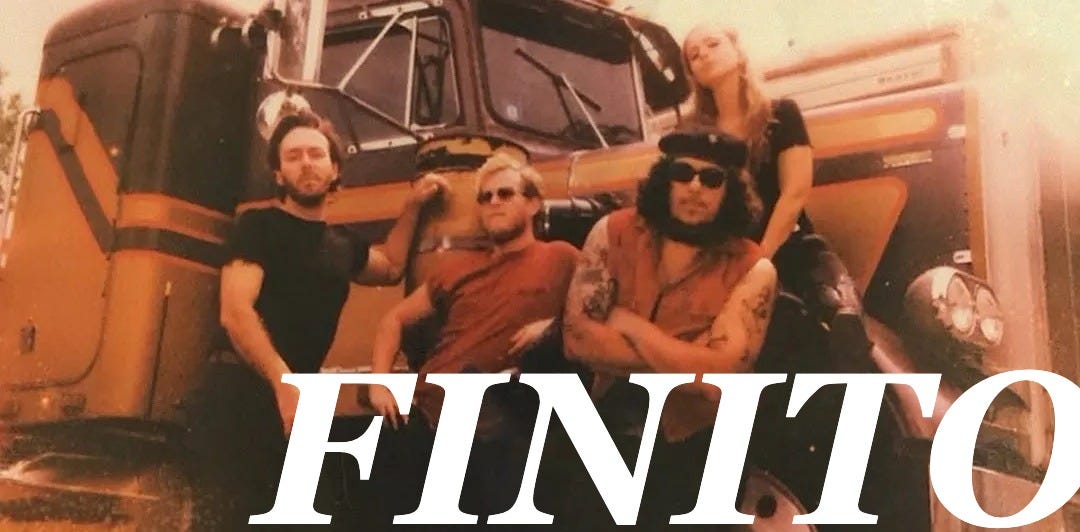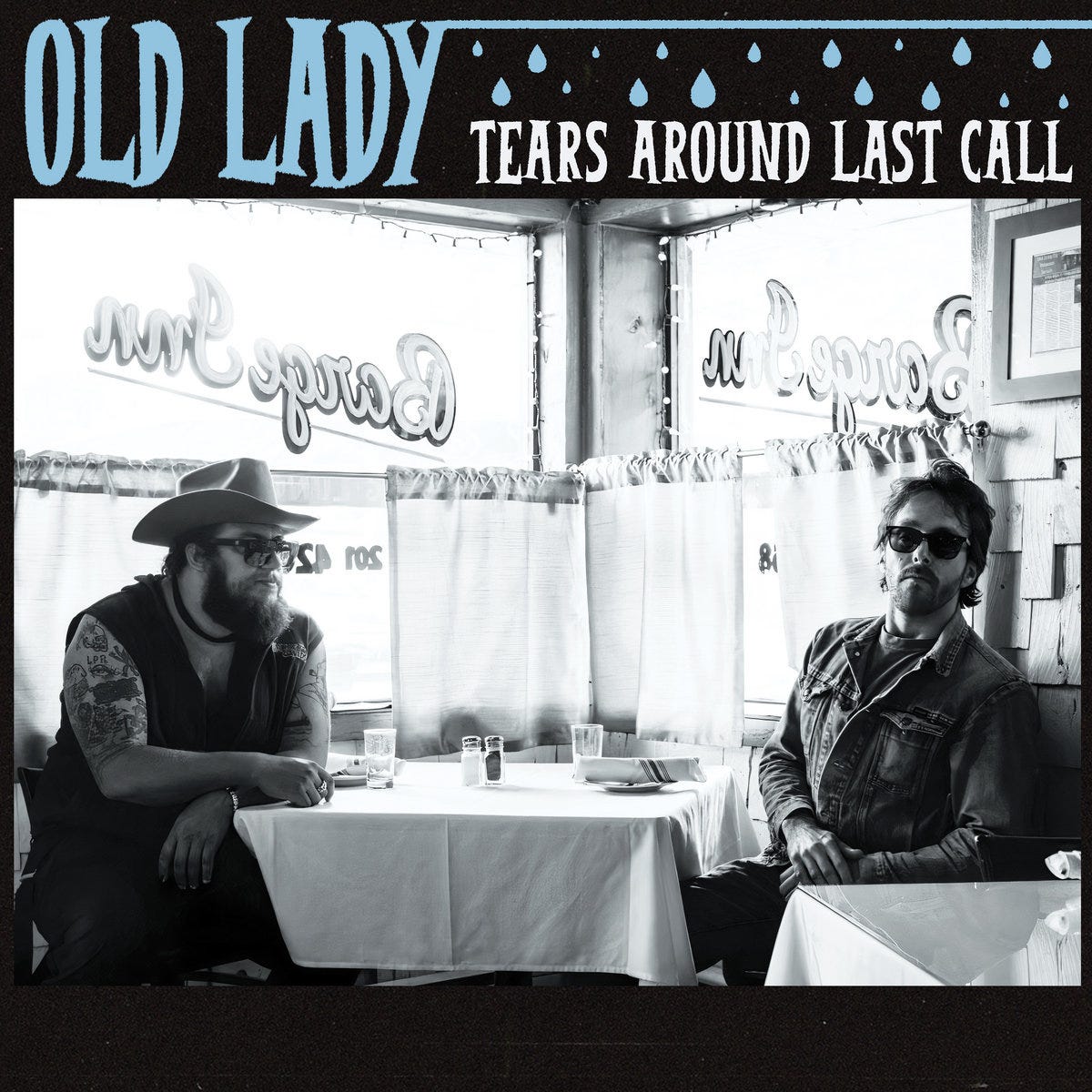Garden State Cowboys
New Jersey's hardest working country rockers and the records that made them.
Widely known as “the hardest working band in construction,” Old Lady is a force best experienced live, preferably in a dank bar with sticky floors, a cheap-as-hell beer-shot combo, and the sweet-stale smell of cigarette smoke drifting in through the open door.
On their third studio record, Tears Around Last Call, these Jersey-bred outlaws — Collin and Kailey Rocker, Isaac Candelario, Joey Nestor, and Hunter Davidsohn — root vintage country themes in the wilds of the tri-state area.
With both grit and grace, Old Lady makes the most of late nights and early mornings, weaving concise and vibrant stories into songs jam-packed with big rigs, bible-thumping, raging rivers, sell-outs, stolen goods, back-booth heartbreak, and grandad’s hand-me-down concrete mixer.
In June, I was fortunate enough to trip past a mechanical bull and stumble up to a long stage featuring this unforgettable five-piece. They shredded under the glow of a cowboy-boot disco ball (spurs and all), as the Brooklyn crowd, decked out in pearl snaps and prairie dresses — bathroom-loosies tucked behind their ears — two-stepped and scuffed the dancefloor. (I headbanged behind a couch in the corner.)
It’s no accident that Old Lady’s songs incorporate sounds and images found throughout the history of country music. With a lifelong love of the genre, and over a decade writing, recording and gigging, this tight-knit crew is steeped in the music of those who came before them.
I had the pleasure of speaking with Isaac and Collin about the country records that most influence Old Lady’s output, as well as the new album, New York’s booming country scene, working construction, The Boss, incarcerated bassists and so much more.
Enjoy. (And yeehaw!)
Isaac, you made me look pretty cool in front of my friends a few weeks back.
Isaac: Oh yeah?
After playing your set in Brooklyn, you came up to me, grabbed my shoulders, and said, “Thanks for dancing.”
Isaac: My eyes are always open, my shades are always on.
Hell yeah. So tell me about Western Jersey.
Collin: We both live in Hunterdon County.
Isaac: Collin’s town isn’t even really a town, it just has a library. Mine has a Main Street. It’s a sleepy river town. I live on the outer edges.
Are there other country bands based in the garden state?
Collin: Not many. When I was a teenager, I would track down older artists my father really loved who were doing “Going Out” tours or playing small shows at libraries and Ukrainian halls. Artists like Bill Kirchen or The New Riders of the Purple Sage.
Isaac: Some of our friends still play country music out here in Jersey. Miss Laurie and the Saddle Tones, Cliff Westfall.
What is Old Lady’s origin story?
Isaac: Collin and I were introduced by a mutual friend. Back then [in the mid-2000s], if you played or even knew country music you pretty much knew everybody else in New York that did that — there was no official scene.
Collin: Definitely not a dance scene. No one was two-stepping or anything like that. There were just swing-dancers hanging around for the rockabilly shows.
It seems like that has changed; I’ve done some reporting on the country scene going on in New York, and it’s pretty expansive.
Isaac: It’s rad. We’ve been a band 13 years and psych-rock was the big thing for a while, so we got used to playing with metal bands, garage-rock bands, punk bands. But now we can actually play a gig with two other country bands.
When did you begin writing songs together?
Isaac: Soon after meeting, we went to a bluegrass festival together and wrote our first song there.
Collin: On the back of a pizza box.
What was the song called?
Isaac: Was it “Irish Goodbye”? I can’t remember off the top of my head, there was a lot of scotch flowing at the time.
Was it country music that solidified your bond?
Collin: Yeah. Our music was never traditional country, but it was steeped and rooted in traditional country music — we were raised on that.
Isaac: Our records play like mixtapes because we write a lot of different kinds of songs. Country and country-blues is the through-line to most of it, but we treat every song like its own little world.
I was excited by how many moods and sounds coexist on Tears Around Last Call. When you’re making a record, do you think of the whole thing as its own bigger world?
Collin: We record what we consider to be the best songs at our disposal when we’re in the studio. Later we figure out which ones work best together side by side. Usually, that process creates an overriding tone.
Isaac: We’re always writing, so it comes down to the question of who in the band has the really good song right now.



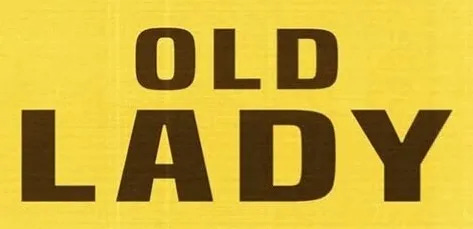


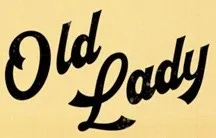

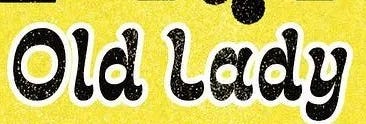
Does your time in the studio impact the songs?
Isaac: We definitely hit some weird magic in the studio. It’ll be late at night and somebody just starts playing a song we wrote 10 years ago and all of a sudden it strikes a chord.
How long after you wrote the pizza box song did you name the band Old Lady?
Isaac: We were sitting in Collin's room, drinking this gallon of moonshine we had from Tennessee, and doodling, as young freaks do. Collin drew this great picture of an elderly biker couple, and I said, “Hey, we're like the old lady.”
It’s a memorable name, especially to someone who’s just getting to know your tunes. The Desert Five Spot show with Patton Magee hooked me.
Isaac: We were his band when he was putting together that record. People are always asking us to be their band or sit in, and we’re usually just too busy to do it. But we love Patton, he’s such a creative artist.
Would you consider yourselves the OG country band in the tri-state area?
Collin: I think that we're one of the first bands that brought in a country dancing tradition to live shows, where people started feeling like they could get weird and dance and not stand there stonefaced. Dancing went hand-in-hand with the country bands we would see down in Tennessee and Texas.
Isaac: We’re very mindful of our live show. We play dance music and bar music. Our records allow us to write different stuff and develop a catalog and depth of experience with our music. But at the show, when you’re in a bar trying to drink and have fun and get laid, we’re not going to play slow song after slow song.
It’s cool to hear that your records are their own thing, it reminds me of how bands like The Dead had a different existence on stage compared to when they were in the studio.
Collin: Absolutely. I wouldn’t want anyone to come to our live show expecting to hear the record.
How often do you play gigs?
Isaac: We try to play once a week. Our bass player is a train engineer and he can guarantee one night a week when he can be where we need him to be.
Collin: We’ll do weekend runs around Pennsylvania, New York and New Jersey, and twice a year we’ll get on the road for two weeks or so.
What about country music hooked you at a young age?
Collin: I always noticed that country songwriting dealt with topics you don’t necessarily grow out of. In a way, it’s something you can hold forever. From a young age, I knew country music was something I would grow into, and for better or worse it’s definitely happened. It’s honest, and I’m obsessed with the idea of a two-minute movie in a song, when the fat’s trimmed out and it takes you on a journey in just a couple verses.
Isaac: The moment I really got into country was when I got my first car. My dad got me one of those Walkmans that you plug into the tape player to play CDs, and he threw in The Best of Tom Petty and The Best of Hank Williams — those two CDs did not get old. It became my soundtrack to really tasting freedom for the first time — it was a sexual revolution.
The car is still my favorite place to listen to music.
Isaac: We gotta figure out how to put a record player in there though.
One-hundred percent. Do you remember the first country vinyls you bought?
Collin: I used to go to a record store in Somerville, New Jersey when I was in high school. In the 1950s and 60s, country music was huge with the blue collar white listeners there, and when they started passing away their families dropped all of their records off at this store — it was the biggest and least popular section there, every country record was a dollar. So I would leave with stacks. But probably early Roger Miller or Wynn Stewart.
Isaac: The first record I ever bought was Tom Petty’s first album, first-pressing, un-opened. I still have it. But that same day, at Bleecker Street Records, I got a first-pressing of Neil Young’s Harvest Moon, which I’d say counts as a country record.
I was going to say Harvest was the cassette I never took out of my car.
Collin: Another record I have to mention, which gives me chills — a stone-cold country record — is “Walking the Streets” by Webb Pierce. It just blows my mind.
Isaac: When I met Collin, he had a much more substantial country record collection than I did. I had a lot of classic rock, like Grateful Dead. I would raid old hippies’ attics.
How would you come across these old hippies?
Isaac: My dad ran a drug and alcohol counseling agency. He wanted to learn how to play guitar, I wanted to play drums, and this other counselor played guitar. Word got out in the AA and NA communities that we were starting a band, so all through high school I had this band called Some More Than Others, which was comprised of me and all these drunks and hippies and people in recovery. People would come and go, people would relapse; we had three bass players in jail at the same time.
What kind of gigs would you play?
Isaac: Where I’m from, in central Pennsylvania, is super rural. The only place to play was in bars, but the whole reason for the band was to stay out of the bars, so we’d rent out the county fairgrounds a lot and throw these mini festivals. We played constantly and rehearsed maybe 12 hours a week, because everyone was just trying to stay clean, ya know?
And you were a teenager.
Isaac: At the time I was the only one who hadn’t been to prison. I changed that, years later.
So you really developed your chops with this crew?
Isaac: Yeah, it was a very motley crew.
Collin, when did you start performing?
Collin: In middle-school, around 2004. I was in a punk band that morphed into a post-hardcore band. And in central New Jersey at the time there was a huge music scene for screamo, emo, post-hardcore stuff. We won a big statewide battle of the bands and got to play Warped Tour, which was really cool.
What songwriters inspired you to start writing?
Collin: My cousin Caitlin, who lives in Virginia and was always a hero to me as a kid. But when I started driving, I would load the six-disc changer with my parents’ old CDs. So Tom Petty's Greatest Hits; Car Wheels On A Gravel Road by Lucinda Williams; and John Prine’s Souvenirs.
I was curious about John Prine’s influence, particularly because of Old Lady’s knack for tongue-in-cheek lyricism.
Collin: A lot of people in punk bands say The Ramones made them realize that they could do it and ripped a curtain down; that’s what John Prine did for me. I heard him and I said, “I think this guy speaks my language.” Honestly, losing him was devastating. I’ve been lucky enough to meet a lot of my heroes, but I felt like I still had some things to say to him.
Isaac, who has inspired your songwriting?
Isaac: Hank Williams is at the top of the pile. The Pixies are also some of my favorites; I like how strange and absurdist and abstract a lot of their songs are, but with a hidden story that resonates. I try to make my songs really sugary and so easy to eat, but there’s some secret meaning under the surface. I also gravitate to matter-of-fact doo-wop lyrics, like The Fleetwoods’ stuff. Also George Jones — lately, I’ve been obsessed with “Take Me.”
Back to your live shows, how has your approach to performing changed over the past 13 years, if at all?
Isaac: Every show is a different set depending on what we’ve written and what we feel like playing. We take into account the room, the bill, the sound, the stage. We could probably play for five hours straight, we have a lot to draw from.
Collin: Throughout our twenties, we played a lot of full nights at bars. So we have a deep catalogue of originals, but also country covers.
Are there any covers you don’t get sick of playing?
Collin: Personally, I always love playing Billy Joe Shaver’s material.
Isaac: I’m very proud that we can play a fun dancy night of country music without playing covers. But Kailey does a great cover of “Fruits of My Labor,” a very sultry Lucinda Williams tune — I enjoy playing that one a lot; I can slow down and get deep in the pocket.
How about other current bands or records you’re excited about?
Isaac: Nathan Xander is probably our favorite songwriter in the New York area. His record Three Waltzes. I put that on all the time. And then our friends Ma’aM from central Pennsylvania are so hardworking and always creating new stuff.
Collin: I would add our label mate Adam Amram to this list. He’s a great songwriter and a great spirit. Another close friend of ours who deserves mentioning is Sweet Pete, his recent record is amazing.
Sweet. And what’s Old Lady got cooking right now?
Isaac: I think we’ll be appearing on a covers album of Bruce Springsteen’s Nebraska.
Collin: Yeah, this record label [stay tuned] is getting New Jersey-based artists together to do electric versions of Springsteen’s acoustic record.
I wasn’t going to ask about Springsteen — it felt too on-the-nose — but now I have to.
Collin: I mean, he’s the best there ever was, as a performer, a writer, a singer. One thing I’ll say about Bruce is that I didn’t grow up with him being forced down my throat, which may be why I’ve grown to love him so much.
Isaac: Also, we work construction, and I think a lot of his music is tailored to a blue-collar audience. A lot of his lyricism hits home powerfully for me.
Collin: Likewise. You hear certain songs of his and you feel like it takes a giant weight off; it’s like, “Okay, I’m glad I don’t have to write that one…”
So you guys currently work construction?
Collin: Yeah, during the day.
Damn, you must have a lot of energy.
Isaac: You got to. It’s a soul sacrifice, the music. Late nights and early mornings.
Collin: I’m pretty tired. But for us, there’s no other way we would have done it.
Isaac: I have a hard time writing when I’m not working. I was three stories up a couple hours ago, on a ladder, for most of the morning.
How much of the construction job makes its way into your songwriting?
Collin: My entire working world — the commute, the characters I work with, the characters I work for, the setting itself — it all goes into the music.
Isaac: I would say a good amount. Most of my writing is more romantic; I write a lot of love and lust songs, but I have a song that’ll be on our next record called “Too Cute For Labor” that’s all about the grind.
When do you know it’s time to make another record?
Isaac: It’s constant; we already have a new record in the bag. We don’t go to the studio to “record a record”; we go every other month to work. So there’s constantly stuff in the can. We get creative in there. And in the mixing process, we’re always recording new stuff at the same time — it’s no fun to go in and just sit there and spin knobs.
So there’s a serious momentum to your output. Does that help you stay focused on the band?
Collin: We’re all pretty distracted with our lives, in a good way, and life yields the songs. We just keep making sure we make the time to get up and have fun recording them.
Tears Around Last Call was released on August 8, 2025 by Nudie Records. Support the band by picking up a copy of the record on some sweet sweet vinyl and check out their upcoming gig at Ruba Club in Philly on September 26!




